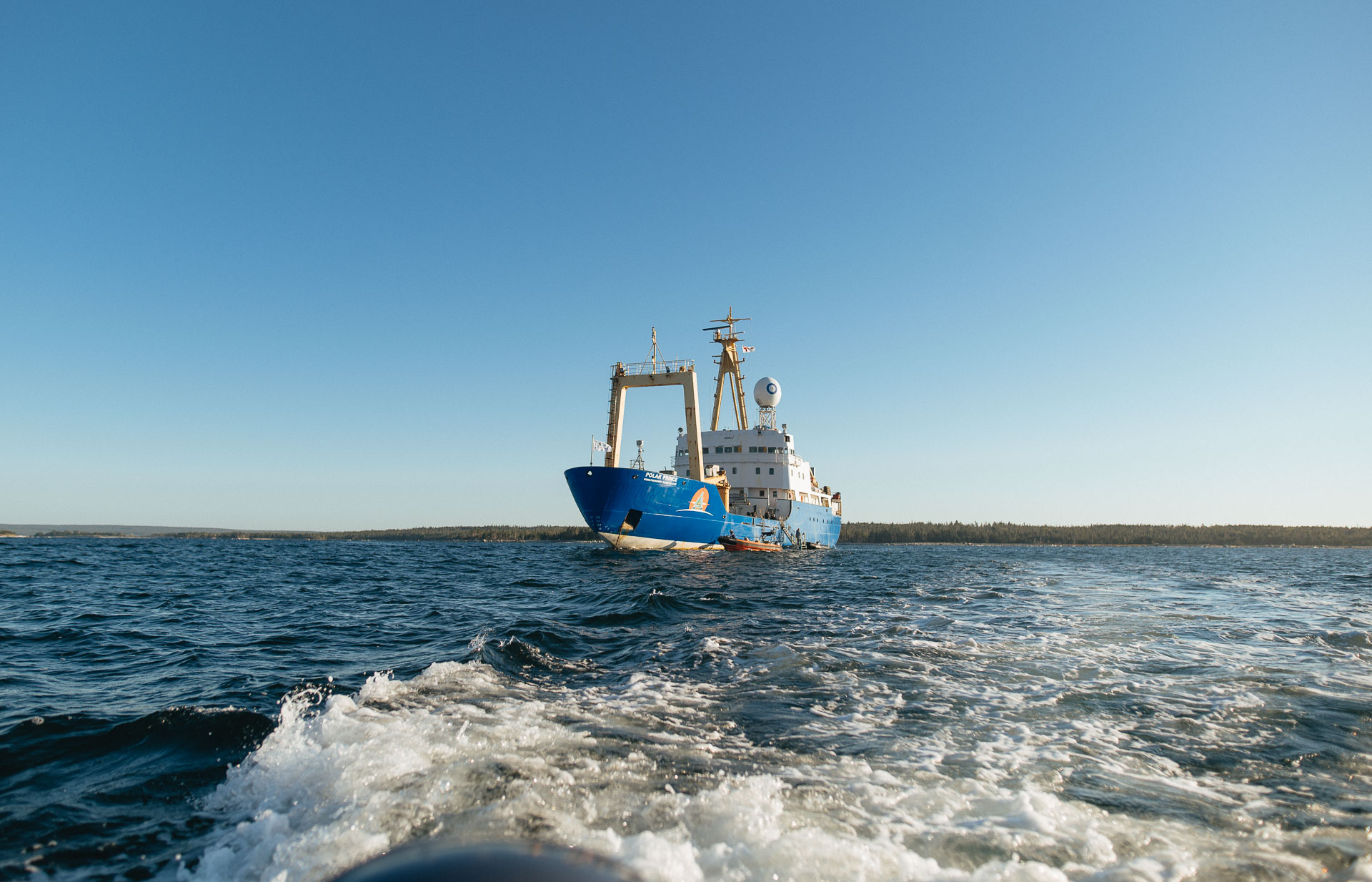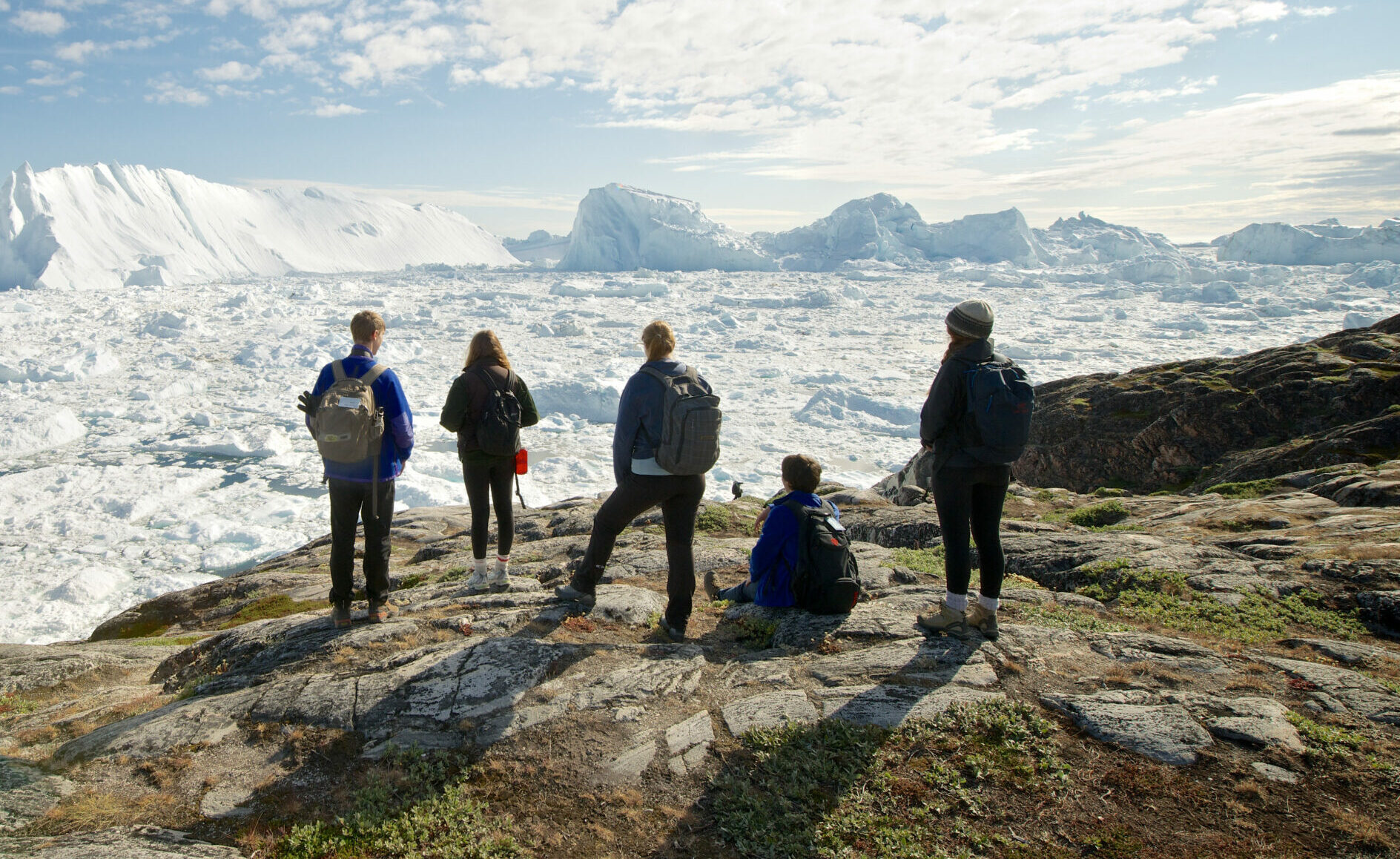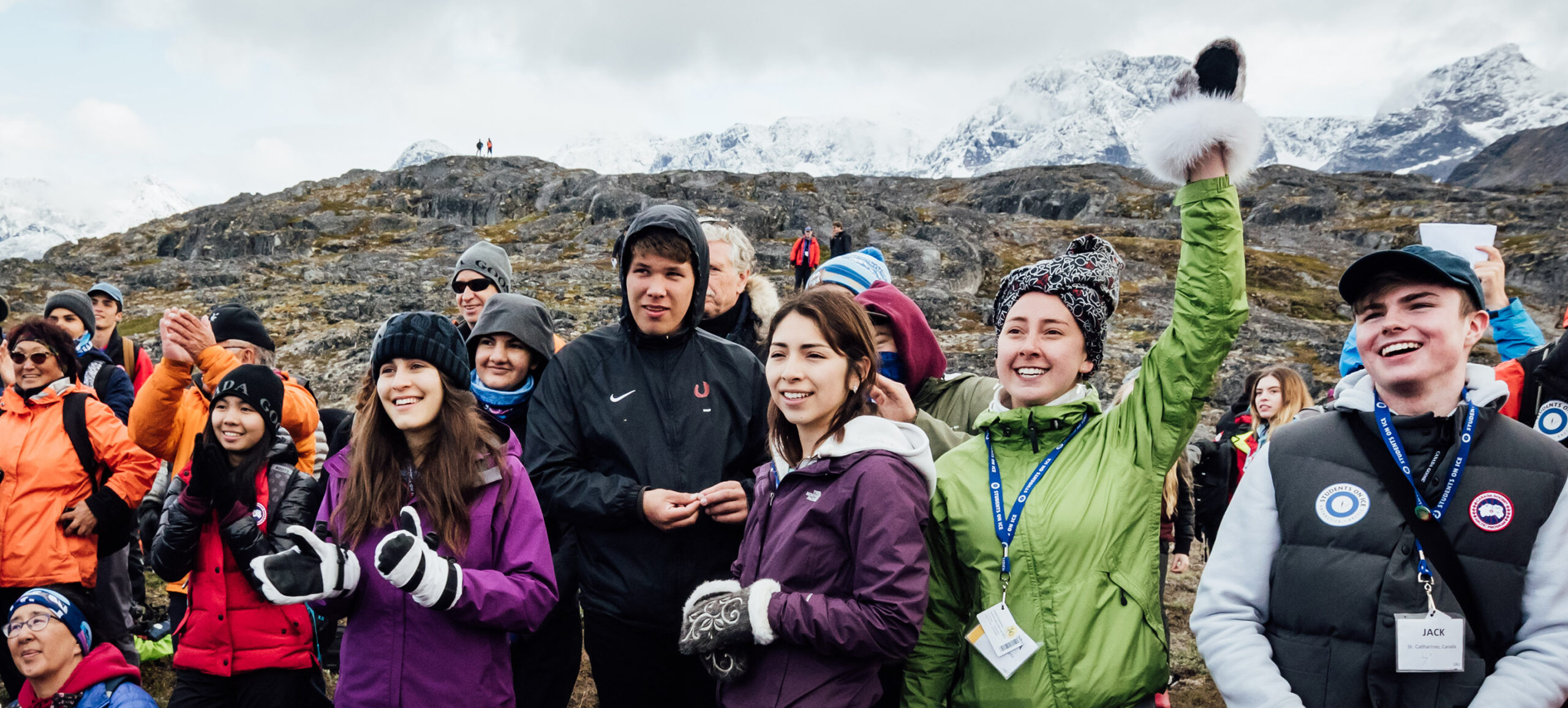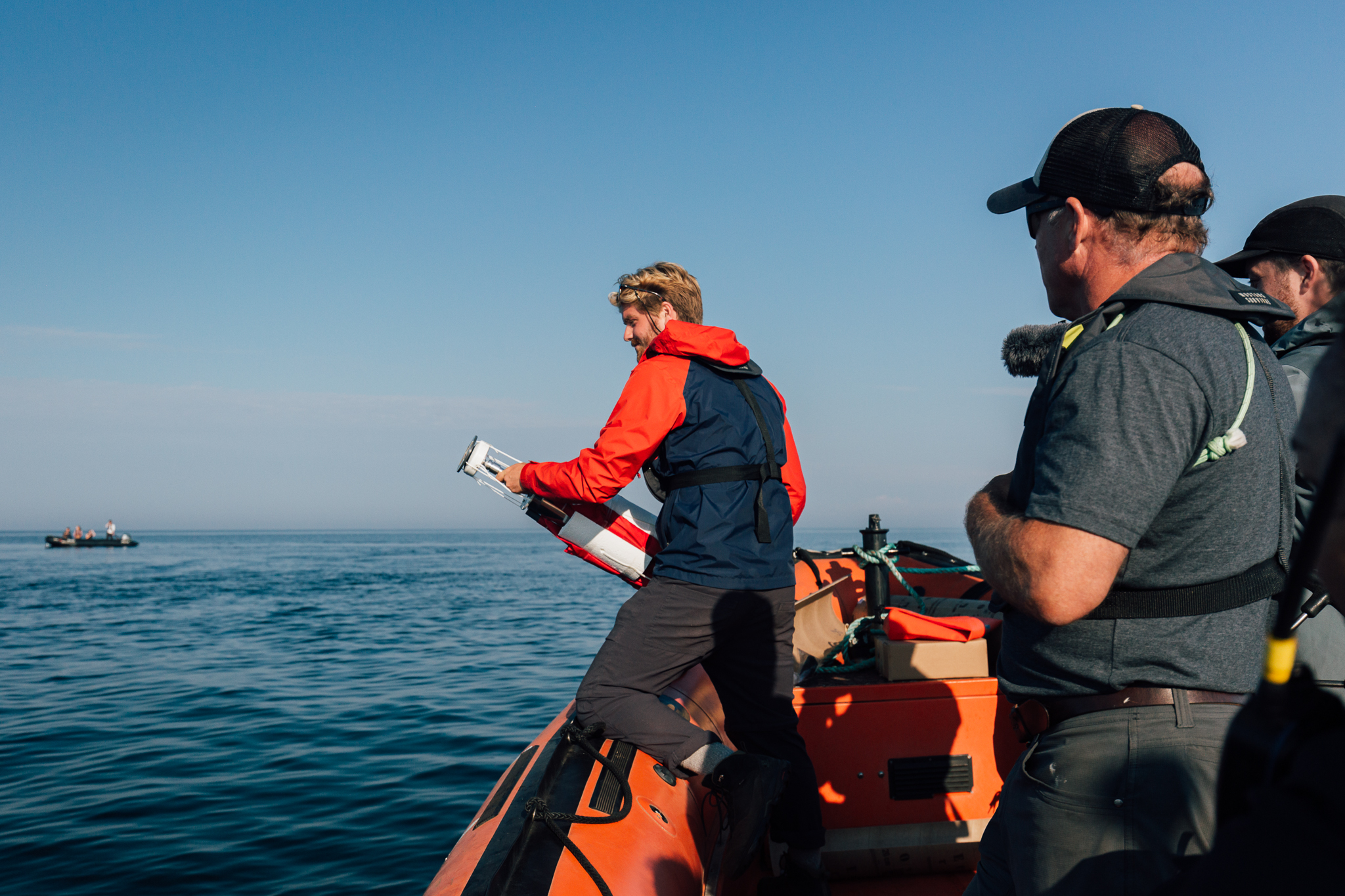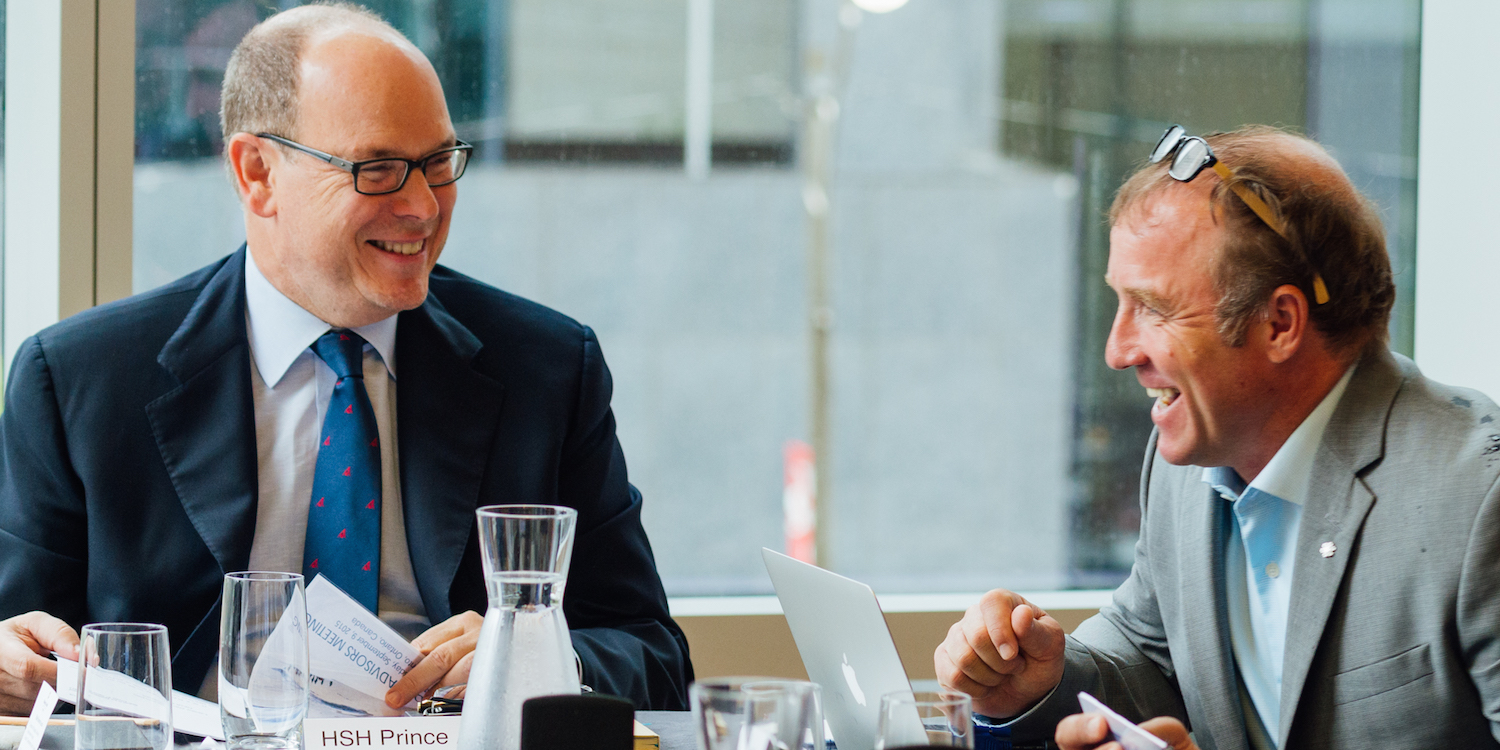Why Empowering Youth & Early-Career Professionals with Opportunities Will Inspire a Healthy Ocean This Decade

It was early September and I was on board the Polar Prince, an Indigenous-owned ship and my home for the next eight days as a participant in SOI Foundation’s first-ever Ocean Conservation Expedition. I sat on a chair under the shade of the steel hangar that protected me from the warmth of the bright sun and from the heavy winds that were starting to roll over the Atlantic Ocean.
After saying goodbye to the coastline of Halifax (known as Kjipuktuk in Mi’kmaq), we watched the sun set over massive swells formed by a hurricane off the coast of Newfoundland. A harvest moon rose over a dark, stirring sea.
Participants of various ages, cultures, geographical locations across Canada and roles in the ocean space sat in a circle on the stern of the icebreaker ship to introduce themselves and share what the ocean means to them.
Artists, media professionals, researchers, educators, industry representatives, captain, crew, and youth shared stories and thoughts about their connection to the ocean. I could feel a collective sense of passion, hope, and care for the sea, and excitement to learn more about and explore the coastal and marine environments around the east coast of Nova Scotia and the Bay of Fundy.
“The ocean is my happy place,” I said. “It’s the place I always turn to find calm and joy.”
As a scuba/freediver, sailor, and storyteller, the ocean has often sparked a sense of wonder and creativity with every rush a wave gracing the shoreline or sight of a Humpback whale’s fluke hitting the surface of the water.
The connection I have with the ocean and the feeling this water world provides me is exactly why I feel responsible for caring and protecting coastal and marine environments in Canada and around the globe. The work I do to inspire people’s connection to the ocean and effort to care for it can’t be accomplished alone. As an early-career ocean professional (ECOP), within the first ten years of my role in the ocean space, I need to be surrounded by an empowering community and have access to meaningful opportunities to be able to create change for a healthy ocean.
Almost a year ago, I found that opportunity and community by joining ECOP Canada as the National Coordinator (or as I like to call myself, a Marine Cheerleader). My role is to strengthen the voices of fellow early-career ocean leaders to be heard and be part of the high-level conversations and decisions made about our ocean’s future.

ECOP is an international program endorsed by the United Nations Decade of Ocean Science for Sustainable Development to elevate and strengthen the diverse perspectives of new generations of ocean professionals. The Canada node was started in 2021 by ECOPs Neha Acharya-Patel, Samantha McBeth, and Ronnie Noonan-Birch, who currently form ECOP Canada’s steering committee.
The UN Ocean Decade (2021-2030) is an opportunity for the global community to make important decisions for the ocean’s future and create innovative and sustainable solutions to restore ocean health. Capacity development, ocean literacy, and the removal of barriers to full gender, generational, and geographic diversity are essential elements of the Decade.
The next eight years will provide lasting changes and effects beyond 2030 in the way we interact with the ocean. We are at a pivotal time in which leadership, innovation, and emerging technologies could help us deal with and solve environmental challenges, while introducing new ocean sectors.
Youth and early-career professionals will be the ones who will inherit decisions made about the ocean today. By strengthening their voices through experiential learning, coastal connections, capacity and community-building, we can empower these future and current ocean leaders to implement innovative solutions for a healthy ocean. This will also help Canada achieve international leadership and a Blue Economy that is environmentally sustainable, socially equitable, and economically viable.
The connection we find in nature and with communities helps us to stay hopeful about the future of Earth and the people, environments, and biodiversity that we rely on and care for. I was reminded of how impactful creating experiences for youth to learn about and connect to the ocean can be when four youth from the Wolastoqey Nation joined the expedition in St. Andrews-by-the-Sea, New Brunswick.
For some of the First Nations youth that joined the Ocean Conservation expedition, it was their first time being aboard a ship and spending days at sea. They engaged with science and conservation initiatives by joining researchers in deploying and collecting data from lobster traps and climate sensors, discussing career pathways in the ocean sector with ECO Canada, swimming in the cold ocean waters, watching Humpback whales surface and interact with their marine environment, and exploring marine protected areas and coastal communities along the shores of the Bay of Fundy.
Listening to the experiences and perspectives of the Wolastoqey youth that inspired them to create art and explore new career pathways provided a deep sense of hope that building meaningful connections to the ocean and being part of a community is the key to empowering future and current ocean stewards to take action for the ocean’s health. The decisions made about the ocean today will impact every generation during the Ocean Decade and beyond.
Without my connection to the ocean and the privilege to work and play in Canada’s salty waters, I’d be lost. Empowering youth and early career professionals to care for a healthy ocean and support each other will not only impact our planet’s future, but it will also change the course of our own lives.
Thank you to the SOI Foundation for inviting ECOP Canada to participate in the Ocean Conservation Expedition, and a special thank you to the artists, researchers, and educators on the ship who inspired me to continue collaborating with ocean leaders from all walks of life to care for and protect my happy place.
Related blogs:
